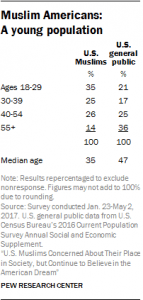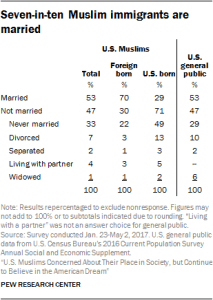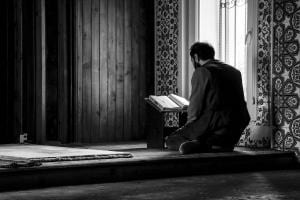
For many single Muslims the process of finding a spouse can be a long, painful, awkward, arduous, and often frustrating process. Many have tried the traditional methods, others have tried dating, dating apps, dating websites and even attended speed dating events and programs.
According to the latest data and research by the Pew Forum on the Muslim community the Muslim American community has a largely growing young demographic of 18-29 year olds (35%) and is larger than the overall US general public ‘s young population at 21%.

The second piece of data from the same research report tells us that:
Roughly half (53%) of Muslim adults in the U.S. are married. A third (33%) have never been married, while 8% are divorced or separated, 4% are unmarried but living with a partner, and 1% are widowed. Foreign-born Muslims are much more likely to be married than are Muslims who were born in the U.S. (70% vs. 29%).

The question becomes with the trend of our community getting younger how are we assisting our young single Muslims in finding spouses? Currently we’ve seen the rise of Muslim dating sites and apps like Half Our Deen, Muslima.com, PureMatrimony.com and the list goes on and on. We’ve also seen the monetization of matchmaking with private businesses/marriage matchmakers charging fees to assist single Muslims find spouses. Lastly, there are speed dating and matrimonial events/programs to bring single Muslims together.
While data/research may not be available about the effectiveness of these platforms it’s enough to be said that the monetization of the matchmaking process is problematic. The above methods are passive in nature and require single individuals to seek these services, invest in those services, and potentially not achieve their intended goal. What’s needed is a far more proactive approach to the challenge of matchmaking.
I strongly believe that the above current approaches are failing us miserably. The speed dating events/programs we see at Islamic conferences, online dating apps/websites, and monetization of the matchmaking process have truly not been solutions to the “marriage crisis” or challenge single Muslims are facing. Many single Muslim men and women often complain about the challenges of finding a spouse and we’ve had these conversations countless times with many friends and family members.
If our community is truly to thrive it becomes critical for a far more proactive effort by institutions in our community to help single Muslims get married. If we truly believe about building community this is the first step.
In addition to this we really need to move beyond the oft repeated Marriage & Islam talks/seminars/workshops. Many of these are often redundant in content and have been repeated over and over to the point where I strongly believe the information and education becomes stale and eventually falls on deaf ears.
While educating our community about the concept of marriage, the roles and responsibilities of a wife and husband, family life, etc. is all important we truly need to begin serious discussions about how we can effectively get our single brothers and sisters married. This includes those not just those who’ve never been married before, but also widows, divorced men and women, convert brothers and sisters, those with special needs, and those with medical conditions, and those with children from previous marriages
I would argue that the solution to the marriage crisis is found in the creation of matrimonial non-profit organizations or matrimonial services in-built into our masjids services they provide the community.
A mentor, masjid operations/leadership consultant, and a very good friend of mine, Maher Budeir (Founder/CEO of BLI) told me once that :
“Masjid need to provide services and meet the needs of the community from the cradle to the grave.”
This struck me as an amazing concept to understand how masjids and Islamic centers need to serve their communities beyond just the 5 daily prayers masjids and Islamic centers need to be providing critical services for the community at all levels and demographics. Thus, as a part of this understanding of serving the community’s needs matrimonial services should be a core part of masjid operations and services provided to the community.
While no one can stop the monetization of a service or a need in the community. I strongly believe that the idea of monetization of the matchmaking process is often an obstacle for some who simply want to get married. In addition to this the success of the sites has yet to be known (the latest statistics provided of a “success rate”by Half Our Deen is 243 successful matches last reported in 2012 (out of how many users is not given in the post on the site), thus getting an accurate assessment of “success” of many of the sites and matchmaking services is hard to know. This is not to disparage or find fault with any of the paid matchmaking services or dating sites, but we’re simply trying to ask are these truly effective methods to solve the the marriage crisis our community is facing?
The best analogy I can give is charging someone to drink from a well in a desert. Yes you can do it as there’s demand for it and make money, but why not actually benefit the people and provide it as a free service? This can definitely be done and sustained via a masjid or Islamic center or have a separate non-profit entity funded by the masjid to provide this service (locally) to its community members. Masjids and Islamic centers should provide this service in order to ensure the future of their community and their operations. Masjids and Islamic centers need to think about how they seek to survive 5, 10, 15 or even 20 years later if they focus on fundraising instead of focusing on community building. Matrimonial services are the beginning point of truly building community. It’s important for masjids and Islamic centers to strategically think about how to help their single Muslim demographic.
A strategic approach needs to be sought to assist single Muslims get married and truly begin building our communities.











